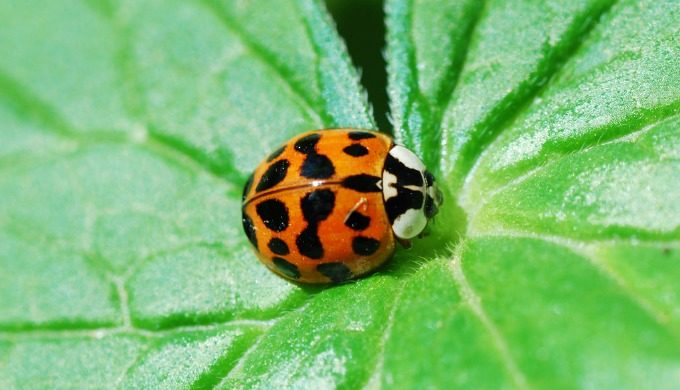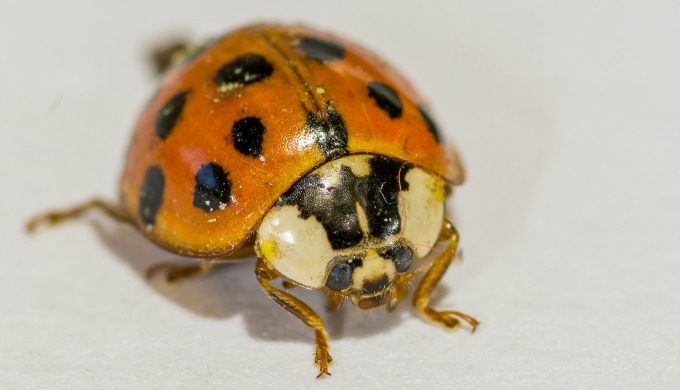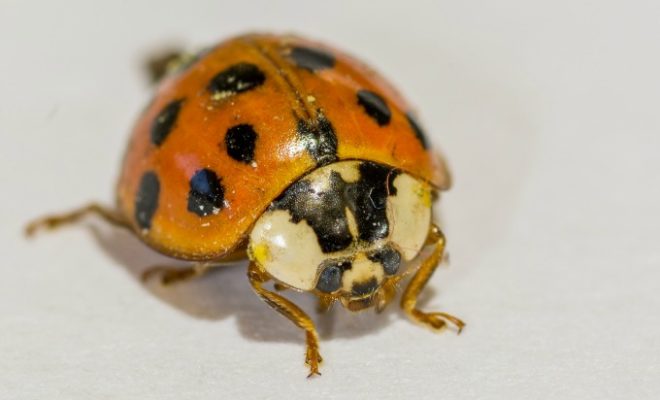Have you ever seen orange ladybugs? If so, what you’ve seen aren’t actually ladybugs at all. Although most native ladybugs are harmless and good for the environment, the recently introduced Asian Lady Beetle (harmonia axyridis) is an exception. Unlike its docile relative, this orange ladybug can be aggressive and bite.
Nature
What Orange Ladybugs Really Are and Why They Are a Threat
Dude Looks Like A Ladybug

Photo: Flickr/Joshua Mayer
The Asian species can vary from light tan or orange to bright red. But if you look closely, you will see the Asian lady beetle has a white marking behind its head in the openings of what looks like a black M. Some also have dark black spots, but on others, the spots are very light or nonexistent.
The Asian Lady Beetle, is relatively new to this country. The beetle is native to Asia (e.g., China, Russia, Korea, Japan), where it dwells in trees and fields, preying on aphids and scale insects.
Introduced to U.S. As Pest Control

Photo: Flickr/Barry Cruver
During the 1960s to 1990s, the U.S. Department of Agriculture attempted to establish the Asian lady beetle to control agricultural pests, especially of pecans and apples. Large numbers of the beetles were released in several states including Georgia, South Carolina, Louisiana, Mississippi, California, Washington, Pennsylvania, Connecticut and Maryland. However, some scientists believe that current infestations in the U.S. originated not from these intentional releases, but from beetles accidentally transported into New Orleans on a freighter from Japan.
Besides being a nuisance, the beetles emit an acrid odor and can stain surfaces with their yellowish secretions when disturbed (volatile compounds used in defense against bird and other vertebrate predators). They also often land on clothing and occasionally will bite or ‘pinch’ if in contact with human skin. In nature, lady beetles eat other insects and have chewing mouthparts. The bite feels like a pinprick and is seldom serious.



